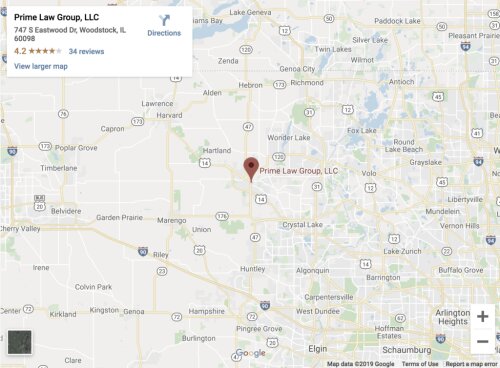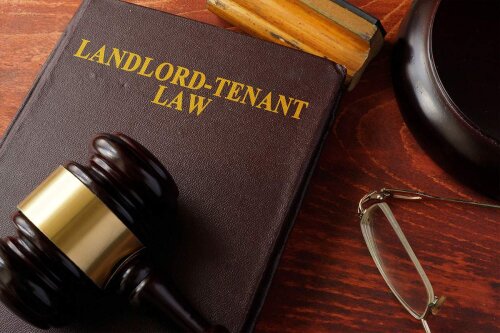Best Real Estate Lawyers in Alabama
Share your needs with us, get contacted by law firms.
Free. Takes 2 min.
Free Guide to Hiring a Real Estate Lawyer
Or refine your search by selecting a city:
List of the best lawyers in Alabama, United States
United States Real Estate Legal Questions answered by Lawyers
Browse our 2 legal questions about Real Estate in United States and read the lawyer answers, or ask your own questions for free.
- What is owner of condo units obligation as far as damage to the condo below their unit.
- The unit above my condo is managed by a Property Management company, and it was rented. During the time it was rented, there were water leaks that damaged my ceilings, and the Management Company. refuses to fix the ceiling so that it matches the rest of the ceiling. Even though... Read more →
-
Lawyer answer by Horus Legal Sulotion
Thank you for sharing the details of your situation. Based on the circumstances you described, you may have grounds to escalate the matter legally. You can file a case to request the appointment of a government engineer from Dubai Municipality...
Read full answer - What's the fee for reviewing a Home purchase contract.
- How much is your fee for looking over a contract on the house I am about to purchase.
-
Lawyer answer by US Legal Group 美国法律集团律师事务所
Hi. Thank you for reaching out to us regarding your upcoming property purchase. As a combined China & U.S. law firm, we specialize in real estate transactions and are well-equipped to review your contract.To provide you with a precise quote,...
Read full answer
United States Real Estate Legal Articles
Browse our 4 legal articles about Real Estate in United States written by expert lawyers.
- NY Lease Audits 2026: Mixed-Use Liabilities
- Commercial real estate in the United States is governed mainly by state law, but federal rules on discrimination, financing, and taxation still shape how you invest, lease, and manage property. For mixed-use buildings in New York City, new "Good Cause Eviction" style protections for certain residential tenants can cap rent... Read more →
- NYC Local Law 97 Fines: Defend Owners 2026
- Starting in 2026, New York City will begin collecting Local Law 97 emissions fines for buildings that exceeded their 2024 limits, at $268 per metric ton of CO2-equivalent over the cap. Owners can significantly reduce or defer penalties by documenting "Good Faith Efforts," including signed retrofit contracts, permits, financing commitments,... Read more →
- Squatters Rights in Texas 2026:How New Laws Expedite Removal
- Real estate law in the United States is mostly state based, but key federal laws like the Fair Housing Act and RESPA still shape every sale, lease, and loan. Title, deeds, and recording with the county clerk or recorder are what legally prove who owns a property and who has... Read more →
About Real Estate Law in Alabama, United States
Real estate law in Alabama governs buying, selling, leasing, and developing both residential and commercial properties throughout the state. These laws also cover matters such as property ownership disputes, landlord-tenant relationships, zoning regulations, land use, foreclosures, and title examinations. Alabama follows specific processes for recording property transactions and resolving conflicts, making it essential for both buyers and sellers to have a clear understanding of their rights and obligations. Whether you are handling a simple home purchase or a complex commercial real estate transaction, understanding Alabama's real estate laws can help protect your interests.
Why You May Need a Lawyer
Legal issues can arise at any stage of a real estate transaction, and seeking the advice of a qualified lawyer can help you avoid costly mistakes. Common situations where legal assistance is needed include:
- Drafting or reviewing purchase agreements or leases
- Resolving disputes over property boundaries or easements
- Handling title issues, including title searches and title insurance claims
- Representing parties in foreclosure actions
- Negotiating commercial real estate transactions
- Assisting with zoning or land use concerns
- Addressing landlord-tenant disagreements, including evictions
- Dealing with problems relating to property taxes or assessments
In each of these situations, a lawyer can help you understand your rights, negotiate favorable terms, and represent you in court if necessary.
Local Laws Overview
Alabama real estate law is influenced by both state statutes and local ordinances. Here are some key aspects of local laws that anyone involved in real estate should be aware of:
- Deed and Recording Requirements: All deeds and related documents must be properly executed and recorded in the county where the property is located. Alabama is a "race-notice" state, which means priority is given to the first properly recorded deed.
- Disclosure Laws: Alabama is a "caveat emptor" or "buyer beware" state, with limited seller disclosure requirements for residential properties. Sellers must disclose only certain defects, such as those that could affect health or safety.
- Foreclosure Process: Alabama primarily uses non-judicial foreclosure for most home loans, allowing lenders to foreclose on a property without going to court, provided the mortgage includes a power of sale clause.
- Homestead Exemption: Alabama offers a homestead exemption, which can provide property tax relief to homeowners who qualify under certain conditions.
- Landlord-Tenant Laws: The Alabama Uniform Residential Landlord and Tenant Act sets out the rights and responsibilities of landlords and tenants, including security deposit limits, notice requirements for entry or eviction, and maintenance obligations.
Because of these and other legal complexities, it is advisable to seek expert legal advice before entering into any real estate transaction in Alabama.
Frequently Asked Questions
What is required for a valid real estate contract in Alabama?
A valid real estate contract in Alabama must be in writing, include identification of the property, specify the sales price and terms, and be signed by all parties involved.
Do sellers have to disclose all problems with a property?
Alabama is a "buyer beware" state, so sellers generally are not required to disclose all property defects. However, they must disclose defects that pose a health or safety risk if asked directly by the buyer.
How are property taxes assessed in Alabama?
Property taxes in Alabama are assessed by county tax assessors based on the value of the property. Homeowners may be eligible for exemptions, such as the homestead exemption, which can lower their tax bill.
What steps are involved in a residential real estate closing?
The closing typically involves title searches, resolving any title issues, finalizing the mortgage, signing documents, and filing the deed with the county probate office.
What are the eviction laws for landlords and tenants?
Under the Alabama Uniform Residential Landlord and Tenant Act, landlords must provide written notice before terminating a lease or evicting a tenant. The amount of notice depends on the reason for eviction, such as nonpayment of rent or lease violations.
How does foreclosure work in Alabama?
Alabama primarily uses non-judicial foreclosure, which allows lenders to foreclose without court action if the mortgage includes a power of sale clause. The process requires public notice and a waiting period before the foreclosure sale.
Do I need a lawyer to buy or sell a house?
While not legally required, hiring a lawyer can help ensure that the transaction is handled properly, contracts are clear, and any disputes are addressed professionally.
What is a title search and why is it important?
A title search is an examination of public records to confirm legal ownership of the property and uncover any liens or claims. It helps protect buyers from potential legal issues.
Can property be transferred without a written agreement?
No, Alabama law requires that any transfer of real estate must be documented in writing through a deed or similar instrument and recorded in the county probate office.
What happens if there is a boundary dispute with a neighbor?
Boundary disputes may be resolved through negotiation, mediation, or legal action. A lawyer can help clarify property lines, review surveys, and represent your interests in court if needed.
Additional Resources
Here are some organizations and government agencies that can provide further information or assistance related to real estate matters in Alabama:
- Alabama Real Estate Commission
- County probate offices for deed recording and property records
- Alabama Department of Revenue - Property Tax Division
- Local bar associations for lawyer referrals
- Legal Services Alabama for qualifying low-income residents
These resources can help you better understand your rights and duties, as well as connect you with professionals qualified to assist in your real estate matter.
Next Steps
If you are considering a real estate transaction or facing a dispute in Alabama, start by gathering all relevant documents such as contracts, deeds, notices, or communications related to the property. Next, consider consulting a licensed Alabama real estate attorney who can review your case, explain your legal options, and represent you during negotiations or in court if necessary. You can contact the Alabama State Bar or a local bar association for referrals to qualified lawyers in your area. Acting sooner rather than later can help you avoid legal complications and protect your investment.
Lawzana helps you find the best lawyers and law firms in Alabama through a curated and pre-screened list of qualified legal professionals. Our platform offers rankings and detailed profiles of attorneys and law firms, allowing you to compare based on practice areas, including Real Estate, experience, and client feedback.
Each profile includes a description of the firm's areas of practice, client reviews, team members and partners, year of establishment, spoken languages, office locations, contact information, social media presence, and any published articles or resources. Most firms on our platform speak English and are experienced in both local and international legal matters.
Get a quote from top-rated law firms in Alabama, United States — quickly, securely, and without unnecessary hassle.
Disclaimer:
The information provided on this page is for general informational purposes only and does not constitute legal advice. While we strive to ensure the accuracy and relevance of the content, legal information may change over time, and interpretations of the law can vary. You should always consult with a qualified legal professional for advice specific to your situation.
We disclaim all liability for actions taken or not taken based on the content of this page. If you believe any information is incorrect or outdated, please contact us, and we will review and update it where appropriate.
Browse real estate law firms by service in Alabama, United States
Alabama, United States Attorneys in related practice areas.
Browse real estate law firms by city in Alabama
Refine your search by selecting a city.














